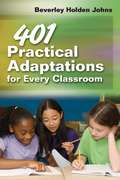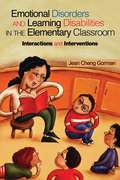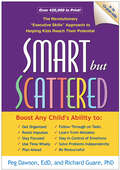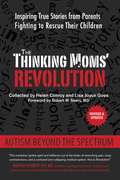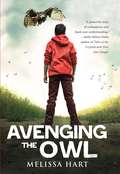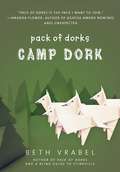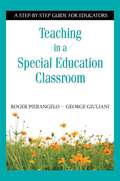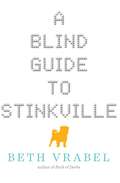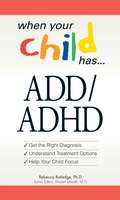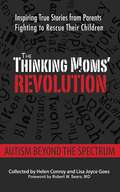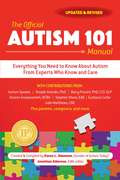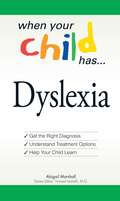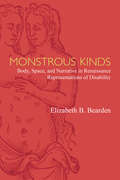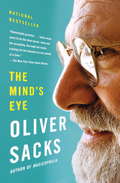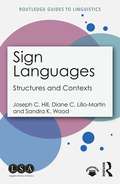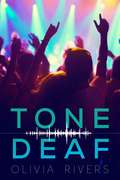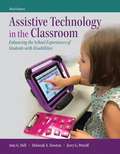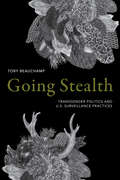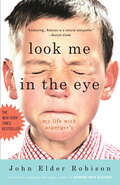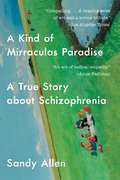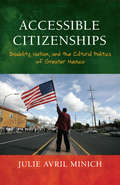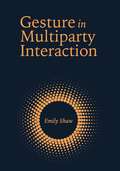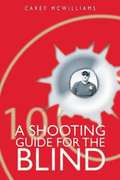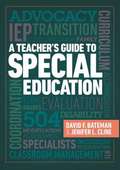- Table View
- List View
401 Practical Adaptations for Every Classroom
by Beverly JohnsAward-winning educator Beverley Holden Johns offers a valuable collection of modifications and accommodations for students with special needs. Busy teachers can put these proven strategies to use immediately with minimal time and expense. The author shares her extensive experience in inclusive settings through concise "3 x 5 card" summaries and relevant examples, in concert with: - Hundreds of adaptations for lectures, worksheets, vocabulary instruction, student response, testing, and the classroom environment - Practical coverage of the legal basis for adaptations, including current updates - The role of adaptations in Individualized Education Programs This book is invaluable for teachers who are new to working with students with special needs. All teachers will gain fresh ideas and discover how applying adaptations can snowball into increased student engagement and optimized learning.
Emotional Disorders and Learning Disabilities in the Classroom: Interactions and Interventions
by Jean Cheng GormanThis unique book focuses on the interaction of learning disabilities and emotional disorders, fostering an understanding of how learning problems affect emotional well-being, and vice-versa. Jean Cheng Gorman provides research-based, classroom-tested practical interventions teachers can integrate into their daily routines, to help students become more purposeful and more effective. This book serves as a resource and a practical classroom guide for all elementary school teachers who are presented with the challenges of addressing the multiple needs - academic, emotional and social - of children with learning disabilities and emotional problems. Part I presents an overview of common learning disabilities and emotional problems. What disorders are teachers most likely to encounter? When should educators intervene, and when should they seek help from others? Part II offers specific classroom interactions and interventions, including insights on how: - Learning disorders are associated with emotional problems - Emotional problems can hide learning disabilities - Learning disorders can exacerbate emotional conditions - Emotional problems can intensify learning disabilities - Emotional health enhances learning . . . and each chapters includes tangible steps teachers can take in their classroom, as well as reproducibles that can be used as is, or as a starting point for materials development. The book ends with a rich and up-to-date list of additional resources for teachers and an annotated bibliography of children’s books and materials. Elementary teachers, administrators, and professional development directors can use this unique and comprehensive book as a solid foundation of knowledge and a practical resource for intervention.
Smart but Scattered: The Revolutionary "Executive Skills" Approach to Helping Kids Reach Their Potential
by Richard Guare Peg DawsonThere's nothing more frustrating than watching your bright, talented son or daughter struggle with everyday tasks like finishing homework, putting away toys, or following instructions at school. Your "smart but scattered" child might also have trouble coping with disappointment or managing anger. Drs. Peg Dawson and Richard Guare have great news there's a lot you can do to help. The latest research in child development shows that many kids who have the brain and heart to succeed lack or lag behind in crucial "executive skills"--the fundamental habits of mind required for getting organized, staying focused, and controlling impulses and emotions. Learn easy-to-follow steps to identify your child's strengths and weaknesses, use activities and techniques proven to boost specific skills, and problem-solve daily routines. Small changes can add up to big improvements--this empowering book shows how.
The Thinking Moms' Revolution: Autism Beyond the Spectrum: Inspiring True Stories from Parents Fighting to Rescue their Children
by Helen Conroy Lisa Joyce GoesThe Thinking Moms’ Revolution (TMR) is a group of twenty-three moms (and one awesome dad) from Montana to Malaysia who all have children with developmental disabilities. Initially collaborating online about therapies, biomedical intervention, alternative medicine, special diets, and practicing professionals on the cutting edge of treatment approaches to an array of chronic and developmental disabilities such as autism, sensory processing disorders, food allergies, ADHD, asthma, seizures, PANDAS, and other related conditions, they’ve come together into something far more substantial. Here, collected by Helen Conroy and Lisa Joyce Goes, are the stories of the moms and their fights to recover their kids from autism and related disorders. With each chapter written by a different TMR member, they share how they discovered each other, what they learned from each other, and why it’s important to have close friends who understand what it’s like to parent a child with special needs. You’ll read about the Thinking Moms’ experiences, and learn how their determination and friendships have become a daily motivation for parents worldwide.
Avenging the Owl
by Melissa HartA long time ago, in a galaxy far, far away, Han Solo avenged the destruction of an innocent planet by helping Luke Skywalker blow up the Death Star. Han walked away with a gold medal and the love of his life. But when Solo Hahn-named in honor of the beloved action hero-tries to avenge the death of his gray-and-white kitten, he gets eight months of community service. Eight months of working at the local raptor center helping owls-his now sworn enemies.For the first time in his life, Solo is labeled a troubled kid, an at-risk youth. He’d always gotten good grades, had good friends, and gotten along with his parents. He used to volunteer to read Reader’s Digest to old people at the retirement home next door, and his favorite thing in the whole wide world was to surf. He wrote screenplays for fun. But when his parents uproot him and move the family from California to backwoods Oregon, Solo starts to lose track of the person he was. Everything is upside down, and he finds himself dealing with things way beyond his understanding. He’s the new kid in town, and he’s got a bad reputation. The question is: What will he do next?This is a story about staying true to yourself when things get tough. Solo has every reason to lash out, but he ultimately needs to find a way to cope. Avenging the Owl deals with the difficult issues of suicide and depression, but more than anything it captures the powerlessness of being a kid. It won’t be easy, but the wild beauty of Oregon, its cold, empty beaches and captivating wildlife, may be just what Solo and his family need to help them start over.
Camp Dork (Pack of Dorks #2)
by Beth VrabelThe pack of dorks heads to camp—and this time the bully they face might just be one of their own.Sheldon convinces Lucy, Sam, April, and Amanda to join him at Camp Paleo. Like cavemen, the campers are going to have to make do without air conditioning, and they'll dig for fossils during the day. And Grandma's coming too—as the lunch lady for the camp next door. But Sam backs out at the last minute to attend a gymnastics camp instead. Lucy wonders why she misses him so much—it's not like he's her boyfriend. Why does the word "boyfriend" make her blush? She needs a distraction. Enter Mr. Bosserman, the grouchy camp leader who won't budge on the camp's caveman theme. The old man needs some softening up, and Lucy knows just the person for the job: Grandma. One successful match made, Lucy starts to see potential lovebirds everywhere. But when the wrong campers pair up, the pack falls apart, all under the watchful eye of a secret blogger who's been writing about the camp's activities. Even worse? A thief is targeting everyone but Lucy, setting her up to look guilty. Soon Lucy finds herself alone, left to fix the messes she's made. If she fails, the pack may be splintered for good.
Teaching in a Special Education Classroom: A Step-by-Step Guide for Educators
by Roger Pierangelo George GiulianiDesigned for professionals working in a resource room, self-contained special class, or inclusive setting, this step-by-step guide helps new teachers in special education get their careers off to a positive start and offers experienced teachers supportive information to help improve classroom practice.Special education experts Roger Pierangelo and George Giuliani review all aspects of special education teaching, from how to get to know your students before school starts to writing end-of-the-year reports. Teaching in a Special Education Classroom offers straightforward advice to make the school year more productive for you and your students.
Blind Guide to Stinkville
by Beth VrabelBefore Stinkville, Alice didn’t think albinism--or the blindness that goes with it--was a big deal. Sure, she uses a magnifier to read books. And a cane keeps her from bruising her hips on tables. Putting on sunscreen and always wearing a hat are just part of life. But life has always been like this for Alice. Until Stinkville. For the first time in her life, Alice feels different--like she’s at a disadvantage. Back in her old neighborhood in Seattle, everyone knew Alice, and Alice knew her way around. In Stinkville, Alice finds herself floundering--she can’t even get to the library on her own. But when her parents start looking into schools for the blind, Alice takes a stand. She’s going to show them--and herself--that blindness is just a part of who she is, not all that she can be. To prove it, Alice enters the Stinkville Success Stories essay contest. No one, not even her new friend Kerica, believes she can scout out her new town’s stories and write the essay by herself. The funny thing is, as Alice confronts her own blindness, everyone else seems to see her for the first time. This is a stirring small-town story that explores many different issues--albinism, blindness, depression, dyslexia, growing old, and more--with a light touch and lots of heart. Beth Vrabel’s characters are complicated and messy, but they come together in a story about the strength of community and friendship.
Boo's Beard
by Rose ManneringTom can’t read facial expressions, so he doesn’t understand the other children and they don’t understand him. Playing at the park can be lonely sometimes, but luckily Tom has his dog, Boo, and Boo is easy to understand. She wags her tail when she is happy and whines when she is sad. One day, Boo gets her beard all knotted up in the bushes. A little girl named Lydia sees Boo and stops to talk to Tom. Boo’s beard has been tangled into a big smile, and Lydia explains to Tom that it’s the expression that someone makes when she is happy. She twists Boo’s beard into more expressions, explaining each one as she goes. When Lydia invites Tom and Boo to play on the swings with the kids, Tom and Boo join her. And at the end of the book, Tom understands the meaning of his own smile. This sweet book familiarizes children with social disabilities, such as autism and Asperger’s syndrome. Children learn the meaning of facial expressions and are introduced to the possibility that some children may have difficulty interacting with them.
When Your Child Has . . . ADD/ADHD: *Get the Right Diagnosis *Understand Treatment Options *Help Your Child Focus
by Rebecca RutledgeADD/ADHD is a complex disorder but getting the clear, concise information you need to help your child doesn't have to be a challenge. Written by the expert doctor team of clinical psychologist Rebecca Rutledge and pediatrician Vincent Ianelli, When Your Child Has . . . ADD/ADHD gives you the latest information and research in a straightforward, easy-to-understand manner. This important guide will help you:Determine the differences between ADD and ADHDFind the right doctor and get the right diagnosisHelp your child focus with and without medicationDeal with emotional struggles and disciplineWith When Your Child Has . . . ADD/ADHD,, you'll get the explanations, advice, and answers you need to understand, nurture, and-most importantly-help your child.Rebecca Rutledge, Ph.D., is a clinical psychologist in Memphis, TN. She has a private practice in which she treats both children and adults with ADD/ADHD. Interestingly, she too has ADD. Her emphasis with her patients is that ADD/ADHD is not a death sentence-it can be treated and managed such that the strengths of an individual with ADD/ADHD can come shining through.Vincent Iannelli, M.D. is the author of The Everything Father's First Year Book. A board-certified pediatrician and fellow of the American Academy of Pediatrics, he is also an associate professor of pediatrics at UT Southwestern Medical Center. After completing his residency at the Children's Hospital in Dallas, Dr. Iannelli opened his private practice. He has nine years of clinical experience taking care of kids with common childhood illnesses. Dr. Iannelli lives in Hearth, TX.
The Thinking Moms' Revolution: Autism beyond the Spectrum: Inspiring True Stories from Parents Fighting to Rescue Their Children
by Helen Conroy Lisa Joyce Goes Robert W. SearsThe Thinking Moms’ Revolution (TMR) is a group of twenty-three moms (and one awesome dad) from Montana to Malaysia who all have children with developmental disabilities. Initially collaborating online about therapies, biomedical intervention, alternative medicine, special diets, and doctors on the cutting edge of treatment approaches to an array of chronic and developmental disabilities, such as autism, sensory processing disorders, food allergies, ADHD, asthma, and seizures, they've come together into something far more substantial. Suspecting that some of the main causes may be overused medicines, vaccinations, environmental toxins, and processed foods, they began a mission to help reverse the effects. In the process, they became a tight-knit family dedicated to helping their kids shed their diagnoses. Here, collected by Helen Conroy and Lisa Joyce Goes, are the stories of their fights to recover their kids from autism and related disorders. With each chapter written by a different TMR member, they share how they discovered each other, what they learned from each other, and why it’s important to have close friends who understand what it's like to parent a child with special needs. You'll read about the their experiences, and learn how their determination and friendships have become a daily motivation for parents worldwide.
The Official Autism 101 Manual: Everything You Need to Know About Autism From Experts Who Know and Care
by Karen L. SimmonsGold IPPY Award winner for Book of the Year, medicine category. When you need answers to your questions about anything related to autism, including early diagnosis, therapies, the buzz about vaccinations, social skills, self-esteem, planning for the future, coping skills, music therapy, or solving reading problems, this master collection gives you practical and proven answers. The Official Autism 101 Manual is the most comprehensive book ever written on the subject of autism. Parents and professionals rave that this is your ultimate resource for understanding and responding to autism. With forty-four contributors—such as Temple Grandin, Bernard Rimland, Pat Wyman, Tony Attwood, Darold Treffert, and more—you learn from dozens of caring experts and supporters who bring you the best the autism community has to offer.
When Your Child Has . . . Dyslexia: Get the Right Diagnosis, Understand Treatment Options, and Help Your Child Learn (When Your Child Has Ser. )
by Abigail Marshall Vincent IannelliFinding out that a child has dyslexia can be shocking and confusing - and thousands of parents get this disturbing news every day. Appearing as early as when a child is struggling to say “Mama” and “Dada,” dyslexia is a condition that will affect a child’s ability to read, write, and understand basic language construction - and for a parent, this can be a tough reality to take in. Covering information on every stage of diagnosis, treatment, and growth, this reference will help parents: teach children how to cope with educational, personal, and social difficulties; choose the right school and reduce academic struggles; maintain communication with their frustrated child; and more. Providing parents with the invaluable information and resources they need, this book takes an in-depth look at the reality of the disability and manages to make sense of it for worried parents.
Monstrous Kinds: Body, Space, and Narrative in Renaissance Representations of Disability (Corporealities: Discourses Of Disability)
by Elizabeth BeardenMonstrous Kinds is the first book to explore textual representations of disability in the global Renaissance. Elizabeth B. Bearden contends that monstrosity, as a precursor to modern concepts of disability, has much to teach about our tendency to inscribe disability with meaning. Understanding how early modern writers approached disability not only provides more accurate genealogies of disability, but also helps nuance current aesthetic and theoretical disability formulations. The book analyzes the cultural valences of early modern disability across a broad national and chronological span, attending to the specific bodily, spatial, and aesthetic systems that contributed to early modern literary representations of disability. The cross section of texts (including conduct books and treatises, travel writing and wonder books) is comparative, putting canonical European authors such as Castiglione into dialogue with transatlantic and Anglo-Ottoman literary exchange. Bearden questions grand narratives that convey a progression of disability from supernatural marvel to medical specimen, suggesting that, instead, these categories coexist and intersect.
The Mind's Eye
by Oliver SacksIn The Mind's Eye, Oliver Sacks tells the stories of people who are able to navigate the world and communicate with others despite losing what many of us consider indispensable senses and abilities: the power of speech, the capacity to recognize faces, the sense of three-dimensional space, the ability to read, the sense of sight. For all of these people, the challenge is to adapt to a radically new way of being in the world. There is Lilian, a concert pianist who becomes unable to read music and is eventually unable even to recognize everyday objects, and Sue, a neurobiologist who has never seen in three dimensions, until she suddenly acquires stereoscopic vision in her fifties. There is Pat, who reinvents herself as a loving grandmother and active member of her community, despite the fact that she has aphasia and cannot utter a sentence, and Howard, a prolific novelist who must find a way to continue his life as a writer even after a stroke destroys his ability to read. And there is Dr. Sacks himself, who tells the story of his own eye cancer and the bizarre and disconcerting effects of losing vision to one side. Sacks explores some very strange paradoxes-- people who can see perfectly well but cannot recognize their own children, and blind people who become hyper-visual or who navigate by tongue vision. He also considers more fundamental questions: How do we see? How do we think? How important is internal imagery or vision, for that matter? Why is it that, although writing is only five thousand years old, humans have a universal, seemingly innate, potential for reading? The Mind's Eye is a testament to the complexity of vision and the brain and to the power of creativity and adaptation. And it provides a whole new perspective on the power of language and communication, as we try to imagine what it is to see with another person's eyes, or another person's mind.
Sign Languages: Structures and Contexts (Routledge Guides to Linguistics #13)
by Joseph C. Hill Diane C. Lillo-Martin Sandra K. WoodSign Languages: Structures and Contexts provides a succinct summary of major findings in the linguistic study of natural sign languages. Focusing on American Sign Language (ASL), this book: offers a comprehensive introduction to the basic grammatical components of phonology, morphology, and syntax with examples and illustrations; demonstrates how sign languages are acquired by Deaf children with varying degrees of input during early development, including no input where children create a language of their own; discusses the contexts of sign languages, including how different varieties are formed and used, attitudes towards sign languages, and how language planning affects language use; is accompanied by e-resources, which host links to video clips. Offering an engaging and accessible introduction to sign languages, this book is essential reading for students studying this topic for the first time with little or no background in linguistics.
Tone Deaf
by Olivia RiversHis world is music. Her world is silent.Ali Collins was a child prodigy destined to become one of the greatest musicians of the twenty-first century-until she was diagnosed with a life-changing brain tumor. Now, at seventeen, Ali lives in a soundless world where she gets by with American Sign Language and lip-reading. She’s a constant disappointment to her father, a retired cop fighting his own demons, and the bruises are getting harder to hide.When Ali accidentally wins a backstage tour with the chart-topping band Tone Deaf, she’s swept back into the world of music. Jace Beckett, the nineteen-year-old lead singer of the band, has a reputation. He’s a jerk and a player, and Ali wants nothing to do with him. But there’s more to Jace than the tabloids let on. When Jace notices Ali’s bruises and offers to help her escape to New York, Ali can’t turn down the chance at freedom and a fresh start. Soon she’s traveling cross-country, hidden away in Jace’s RV as the band finishes their nationwide tour. With the help of Jace, Ali sets out to reboot her life and rediscover the music she once loved.
Assistive Technology in the Classroom: Enhancing the School Experiences of Students with Disabilities (Third Edition)
by Amy G. Dell Deborah A. Newton Jerry G. PetroffWith an emphasis on the integration of assistive technology into the curriculum, this text focuses on how assistive technology can be used in schools to enhance the teaching and learning of students with disabilities. This link between technology and teaching and learning drives the book's organization as well as its content. It is organized by school-related tasks that students must perform on a daily basis to be successful -- reading, writing, practicing academic skills, and communicating with their teachers and peers – and presents descriptions of technology-based solutions to the obstacles students with disabilities face in completing these tasks. Since being able to access computers is one major barrier, the text features a section on making computers accessible to students with a wide range of disabilities. A companion web site offers up-to-date information on product names, vendors, web site addresses, and other time-sensitive material.
Going Stealth: Transgender Politics and U.S. Surveillance Practices
by Toby BeauchampIn Going Stealth Toby Beauchamp demonstrates how the enforcement of gender conformity is linked to state surveillance practices that identify threats based on racial, gender, national, and ableist categories of difference. Positioning surveillance as central to our understanding of transgender politics, Beauchamp examines a range of issues, from bathroom bills and TSA screening practices to Chelsea Manning's trial, to show how security practices extend into the everyday aspects of our gendered lives. He brings the fields of disability, science and technology, and surveillance studies into conversation with transgender studies to show how the scrutinizing of gender nonconformity is motivated less by explicit transgender identities than by the perceived threat that gender nonconformity poses to the U.S. racial and security state. Beauchamp uses instances of gender surveillance to demonstrate how disciplinary power attempts to produce conformist citizens and regulate difference through discourses of security. At the same time, he contends that greater visibility and recognition for gender nonconformity, while sometimes beneficial, might actually enable the surveillance state to more effectively track, measure, and control trans bodies and identities.
Look Me in the Eye: My Life with Asperger's (Thorndike Biography Ser.)
by John Elder RobisonEver since he was young, John Robison longed to connect with other people, but by the time he was a teenager, his odd habits—an inclination to blurt out non sequiturs, avoid eye contact, dismantle radios, and dig five-foot holes (and stick his younger brother, Augusten Burroughs, in them)—had earned him the label “social deviant.” It was not until he was forty that he was diagnosed with a form of autism called Asperger’s syndrome. That understanding transformed the way he saw himself—and the world. A born storyteller, Robison has written a moving, darkly funny memoir about a life that has taken him from developing exploding guitars for KISS to building a family of his own. It’s a strange, sly, indelible account—sometimes alien yet always deeply human.
A Kind of Mirraculas Paradise: A True Story About Schizophrenia
by Sandra AllenDazzlingly, daringly written, marrying the thoughtful originality of Maggie Nelson's The Argonauts with the revelatory power of Neurotribes and The Spirit Catches You and You Fall Down, this propulsive, stunning book illuminates the experience of living with schizophrenia like never before.Sandra Allen did not know her uncle Bob very well. As a child, she had been told he was “crazy,” that he had spent time in mental hospitals while growing up in Berkeley in the 60s and 70s. But Bob had lived a hermetic life in a remote part of California for longer than she had been alive, and what little she knew of him came from rare family reunions or odd, infrequent phone calls. Then in 2009 Bob mailed her his autobiography. Typewritten in all caps, a stream of error-riddled sentences over sixty, single-spaced pages, the often incomprehensible manuscript proclaimed to be a “true story” about being “labeled a psychotic paranoid schizophrenic,” and arrived with a plea to help him get his story out to the world. In A Kind of Mirraculas Paradise, Allen translates her uncle’s autobiography, artfully creating a gripping coming-of-age story while sticking faithfully to the facts as he shared them. Lacing Bob’s narrative with chapters providing greater contextualization, Allen also shares background information about her family, the culturally explosive time and place of her uncle’s formative years, and the vitally important questions surrounding schizophrenia and mental healthcare in America more broadly. The result is a heartbreaking and sometimes hilarious portrait of a young man striving for stability in his life as well as his mind, and an utterly unique lens into an experience that, to most people, remains unimaginable.
Accessible Citizenships: Disability, Nation, and the Cultural Politics of Greater Mexico
by Julie Avril MinichAccessible Citizenships examines Chicana/o cultural representations that conceptualize political community through images of disability. Working against the assumption that disability is a metaphor for social decay or political crisis, Julie Avril Minich analyzes literature, film, and visual art post-1980 in which representations of non-normative bodies work to expand our understanding of what it means to belong to a political community. Minich shows how queer writers like Arturo Islas and Cherríe Moraga have reconceptualized Chicano nationalism through disability images. She further addresses how the U.S.-Mexico border and disabled bodies restrict freedom and movement. Finally, she confronts the changing role of the nation-state in the face of neoliberalism as depicted in novels by Ana Castillo and Cecile Pineda. Accessible Citizenships illustrates how these works gesture towards less exclusionary forms of citizenship and nationalism. Minich boldly argues that the corporeal images used to depict national belonging have important consequences for how the rights and benefits of citizenship are understood and distributed. A volume in the American Literatures Initiative
Gesture in Multiparty Interaction (Gallaudet Sociolinguistics #24)
by Emily ShawGesture in Multiparty Interaction confronts the competing views that exist regarding gesture’s relationship to language. In this work, Emily Shaw examines embodied discourses in American Sign Language and spoken English and seeks to establish connections between sign language and co-speech gesture. By bringing the two modalities together, Shaw illuminates the similarities between certain phenomena and presents a unified analysis of embodied discourse that more clearly captures gesture’s connection to language as a whole. Shaw filmed Deaf and hearing participants playing a gesture-based game as part of a social game night. Their interactions were then studied using discourse analysis to see whether and how Deaf and hearing people craft discourses through the use of their bodies. This volume examines gesture, not just for its iconic, imagistic qualities, but also as an interactive resource in signed and spoken discourse. In addition, Shaw addresses the key theoretical barriers that prevent a full accounting of gesture’s interface with signed and spoken language. Her study pushes further the notion that language is fundamentally embodied.
A Shooting Guide for the Blind
by Carey McWilliamsThis is a guide regarding the proper application of firearms, especially by those with any degree of visual impairment, with an emphasis on safe firearms usage when engaging in activities such as hunting, target shooting, and even self-defense at home or on the street. Author Carey McWilliams became the first totally blind person to obtain a concealed carry license in 2001. In this book, he utilizes his thirty years of certified gun training to teach others with visual impairments, as well as those seeking to train them, all the various methods that have allowed him to pass countless shooting exams to obtain a number of state-issued concealed carry permits and hunting licenses. For this guide's creation, real guns from the author's personal firearms collection were used as props for certain technical sections, as well as old written text and recorded lectures obtained during his training through the National Rifle Association, law enforcement, and even the United States Army. Topics include how to identify, load, unload, and work with different types of firearms without the benefit of sight, how the military's techniques in close-quarters combat governs defensive shooting by the blind, case studies and official government research debunking the myth that blind people pose a greater danger than the sighted regarding firearm usage, and how to find resources to obtain training certification.
A Teacher's Guide to Special Education
by David Bateman Jenifer ClineDespite the prevalence of students with disabilities in the general education classroom, few teachers receive training on how to meet these students' needs or how to navigate Despite the prevalence of students with disabilities in the general education classroom, few teachers receive training on how to meet these students' needs or how to navigate the legally mandated processes enumerated in the Individuals with Disabilities Education Act (IDEA). What is their role? What are their responsibilities? What are the roles and rights of parents? And what must all teachers do to ensure that students with disabilities and other special needs receive the quality education they're entitled to? In this practical reference, David F. Bateman--bestselling author of A Principal's Guide to Special Education --and special education administrator Jenifer L. Cline clarify what general education teachers need to know about special education law and processes and provide a guide to instructional best practices for the inclusive classroom. Topics covered include The pre-referral, referral, and evaluation processes Individualized education programs (IEPs) and the parties involved Accommodations for students who do not quality for special education, including those covered by Section 504 Transition from preK to K-12 and from high school to postschool life Classroom management and student behavior Educational frameworks, instructional strategies, and service delivery options Assessment, grades, graduation, and diplomas The breadth of coverage in this book, along with its practical examples, action steps, and appendixes covering key terms and definitions will provide the foundation all K-12 teachers need to successfully instruct and support students receiving special education services. It's an indispensable resource for every general education classroom. the legally mandated processes enumerated in the Individuals with Disabilities Education Act (IDEA). What is their role? What are their responsibilities? What are the roles and rights of parents? And what must all teachers do to ensure that students with disabilities and other special needs receive the quality education they're entitled to? In this practical reference, David F. Bateman--bestselling author of A Principal's Guide to Special Education --and special education administrator Jenifer L. Cline clarify what general education teachers need to know about special education law and processes and provide a guide to instructional best practices for the inclusive classroom. Topics covered include The pre-referral, referral, and evaluation processes Individualized education programs (IEPs) and the parties involved Accommodations for students who do not quality for special education, including those covered by Section 504 Transition from preK to K-12 and from high school to postschool life Classroom management and student behavior Educational frameworks, instructional strategies, and service delivery options Assessment, grades, graduation, and diplomas The breadth of coverage in this book, along with its practical examples, action steps, and appendixes covering key terms and definitions will provide the foundation all K-12 teachers need to successfully instruct and support students receiving special education services. It's an indispensable resource for every general education classroom.
